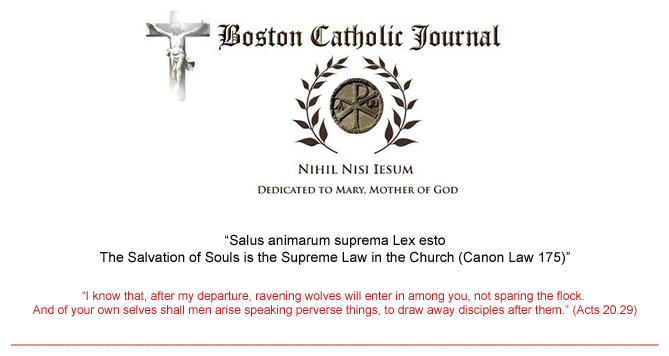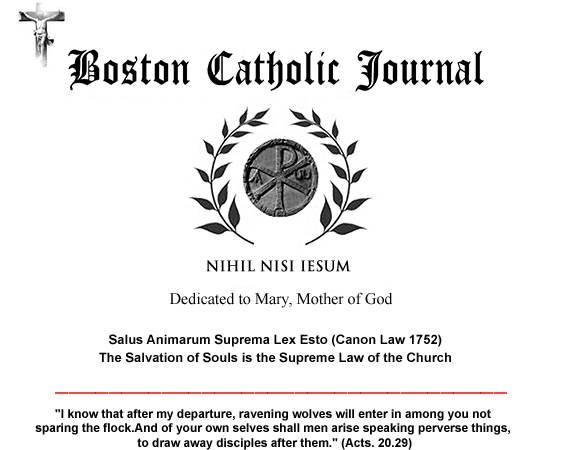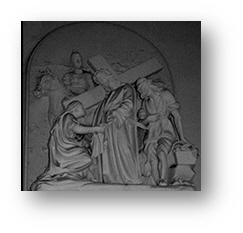| |
|||||||||||||||||||||||||||||||||||||
|
CHAPTERS |
|||||||||||||||
Having a Humble Opinion of Self
|
“EVERY
man naturally desires knowledge; but what good is knowledge
without fear of God?
Indeed a humble rustic who serves God is better than
a proud intellectual who neglects his soul to study
the course of the stars. He who knows himself well becomes
mean in his own eyes and is not happy when praised by
men. |
Click to listen to this chapter
Sister’s Commentary:
|
“EVERY
man naturally desires knowledge; but what good is knowledge
without fear of God? Indeed a humble rustic who serves God
is better than a proud intellectual who neglects his soul
to study the course of the stars. He who knows himself well
becomes mean in his own eyes and is not happy when praised
by men. |
I.
The touchstone
here concerns our motivation for wanting to learn. Do we wish to do
so simply to grow in knowledge, as though knowledge itself were an
end and not a means to a far greater purpose?
If we consider ourselves carefully and truthfully, we find that all
of us are possessed of much useless knowledge; knowledge that
benefits no one — ourselves included — and that we never apply for the
good and service of others.
Our use of the Internet is a prime example of this. At the end of a
given day, after much desultory exploring and cursory reading we often
find that we are unable to recall much of what we had read. It piqued
our interest for the moment and we followed increasingly unrelated links
until we are unable to recall the point at which we started. We had
read much, but retained little. Most of our reading was nothing more
than idle curiosity. We gather fragments of facts that tomorrow we no
longer remember and have no need to recall. How has it profited us?
In reality it has been little more than momentary “entertainment" to
while away hours better spent knowing God. It is unlikely on your death
bed that you will recall, or wish to recall, the latest folly or fortune
of the present day's idolized “entertainer". Indeed, perhaps his or
her death will have preceded your own.
We are so promiscuous and often utterly indiscriminate in what we expose
our minds to. To what end? Instead, let us resolve to be wiser and far
more selective of what we expose our minds and hearts to, seeking that
which leads us deeper into God, that which promotes our love for others
... Is there a greater end, a more pressing purpose? This very night
is not guaranteed to you, let alone tomorrow.
We must equally be aware of that inverted snobbishness which culls knowledge
simply to feed our sense of intellectual grandeur, most often cultivated
to assert our “superiority” over others “of less learning”. How often
such people seek any opportunity afforded them to display their “intellectual
superiority” at the expense of the humble! Their “knowledge” is acquired
solely to promote themselves ... which is impossible without simultaneously
“demoting” others. It is the aggrandizement of the self. And more often
than not, they know it ... too.
The knowledge we stand in direst need of is that which makes us grow
in love for God and his kingdom ...
What was the knowledge that Mary the Mother of God was possessed of
? That which was born of an intimate love of her Son Jesus Christ, and
of the Scriptures. This is true wisdom, true knowledge, for it leads
us to divine truth. Let us, then, humbly ask Mary to lead us deeper
into the truths of God.
Your Little Sisters in
Christ
II.
|
“Many words do not satisfy the soul; but a good life eases the mind and a clean conscience inspires great trust in God. The more you know and the better you understand, the more severely will you be judged, unless your life is also the more holy. Do not be proud, therefore, because of your learning or skill. Rather, fear because of the talent given you. If you think you know many things and understand them well enough, realize at the same time that there is much you do not know. Hence, do not affect wisdom, but admit your ignorance. Why prefer yourself to anyone else when many are more learned, more cultured than you.”. |
When we over-eat,
when we over-indulge in food consumption, no matter how delectable the
food, we do not feel well. We do not feel any benefit of having over-consumed.
Quite to the contrary we may feel most unwell! The food, good in itself,
has been abused. It is exactly the same with intellectual and spiritual
food. If we over-indulge in absorbing words, we fail to benefit from
of the message, and find ourselves with the dissatisfying feeling of
having learned nothing.
Look, instead, to the example of Mary!
How few of her words are recorded in the Gospels, how sparingly she speaks, and yet in little we are profoundly lead us to Christ, and to a deeper understanding of Christ.
Likewise, it is far better for us to look within the silence of our hearts and see where we can grow in our love for God and in the charitable service of others. We are not wanting in words; the challenge is to put them into practice. If, in fact, we are gifted by God with the capacity for great learning, it should be used for the service and good of others. There is nothing to be proud about — it is a gift from the “Giver of all good things.” 1 , rather we have a responsibility to communicate the good. If we are really honest, the sum of all that we know (or think we know) of God is as nothing compared to His greatness and grandeur, and that is a wonderful realization, that He is inexhaustible beauty and mystery! If we are acquainted with people knowing far more that we do, then let us praise God for His gift and pray for those persons that they use their gifts fruitfully for the kingdom.
__________________________
1 St. James 1.17
Your Little Sisters in
Christ
III.
|
“If you wish to learn and appreciate something worth while, then love to be unknown and considered as nothing. Truly to know and despise self is the best and most perfect counsel. To think of oneself as nothing, and always to think well and highly of others is the best and most perfect wisdom. Wherefore, if you see another sin openly or commit a serious crime, do not consider yourself better, for you do not know how long you can remain in good estate. All men are frail, but you must admit that none is more frail than yourself. ”. |
There is
such a beauty, such a blessed reward in being hidden, hidden with Christ
in God. This is the ideal of the contemplative life, but also much of
our intimacy with, and love for God — whatever our state in life — is
hidden inasmuch as it consists in what passes between two lovers:
God and the soul. That sublime and mutual love is experienced, lived,
enacted, in the most secret chambers of the heart, chambers around which
an impenetrable curtain is drawn between this mutual exchange of love,
and the world. This is the hidden life, and how zealously that chamber
is guarded by the Groom!
Genuine self-knowledge always leads to humility. In the deepest moments of introspection we behold ourselves in far greater authenticity than the carefully manipulated image that we present to the world. The world we can deceive, even as the world deceives us. But in the stillness of our heart we behold what God beholds! Nothing is hidden from God, and here, in our last refuge from the world, nothing is hidden from us. Pretensions, appearances, lies — with which we deceive the world — one and all fall away, and cannot deceive us! In this sense, here, in this life, as Saint Paul promises in the Life to come, “we know even as we are known”.1 With authentic knowledge of all that we really are, and really are not, ineluctably comes humility which proceeds from apprehending the truth.
In the Epistle of St John we are admonished that, if we see our brother sin, we are to pray for him and the sinner will receive life! How different from the satisfaction that some receive upon learning of the sin of another! To relish another's fall into sin — is to sin more grievously still, for we share in the delight of demons!
We are not to be judges, but lovers! Each and every person is created in the image of God and thus worthy of respect; what is more, as Father Thomas à Kempis so wisely tells us, we ourselves do not know when we shall fall, for we are all frail, all subject to sin, all susceptible to falling.
Your Little Sisters
in Christ
__________________________
1 I Corinthians 13.12
![]() Printable PDF Version of Sister's Commentary Chapter 2
Printable PDF Version of Sister's Commentary Chapter 2
|
Totally Faithful to the
Sacred
Deposit of Faith
entrusted to the Holy See in Rome
“Scio
opera tua ... quia modicum habes virtutem, et servasti verbum
Meum, nec non negasti Nomen Meum”
Copyright © 2004 - 2026 Boston Catholic Journal. All rights reserved. Unless otherwise stated, permission is granted by the Boston Catholic Journal for the copying and distribution of the articles and audio files under the following conditions: No additions, deletions, or changes are to be made to the text or audio files in any way, and the copies may not be sold for a profit. In the reproduction, in any format of any image, graphic, text, or audio file, attribution must be given to the Boston Catholic Journal.
|























